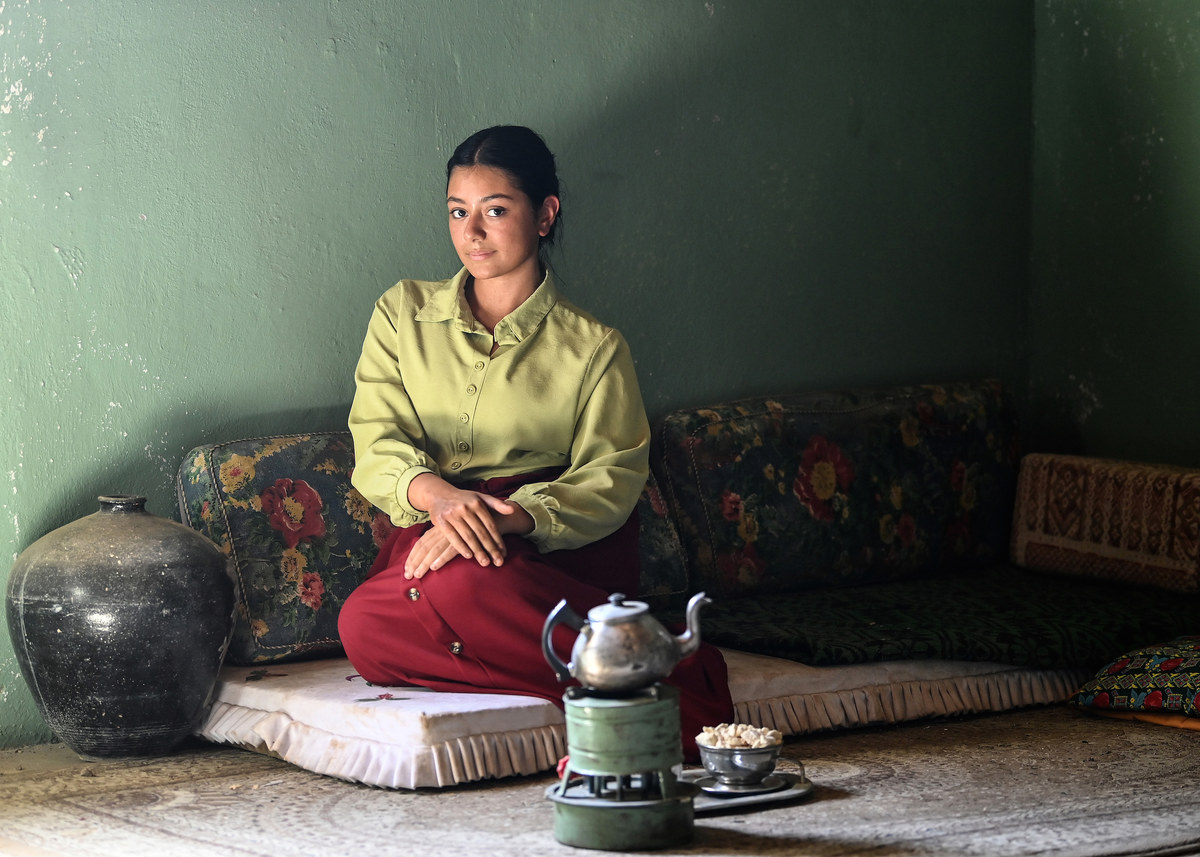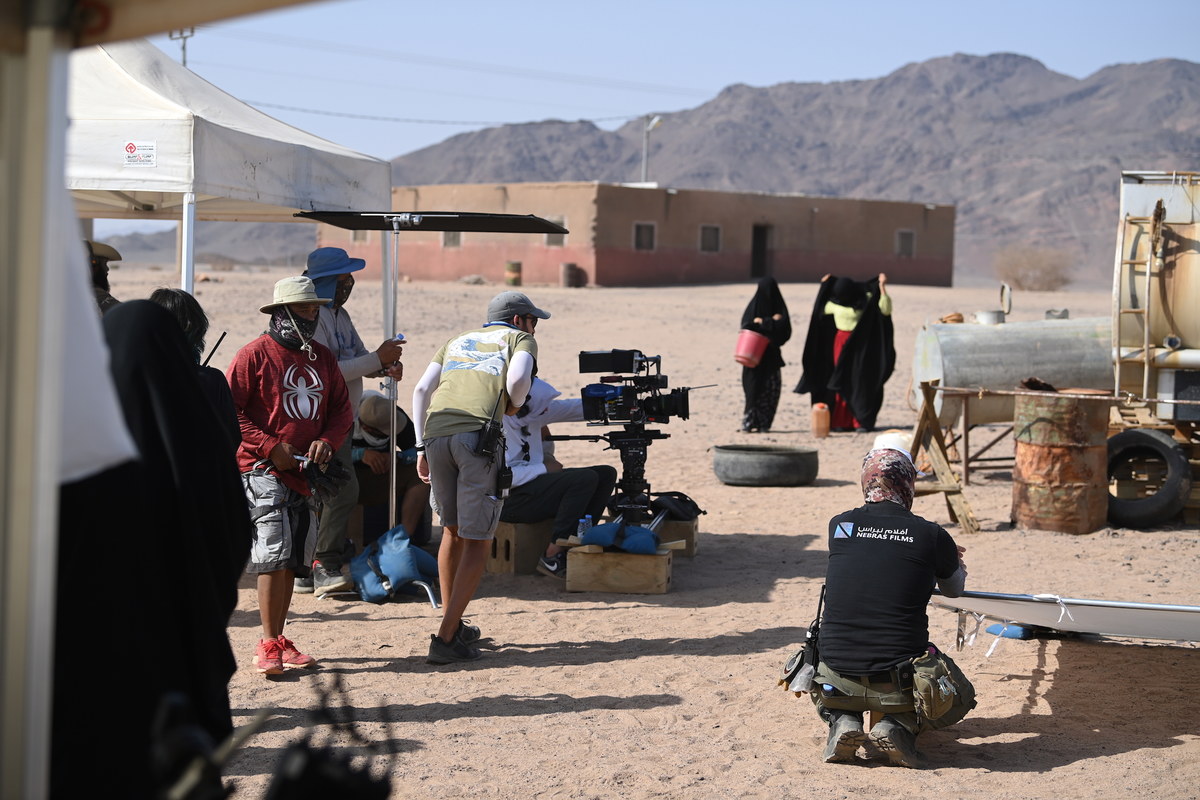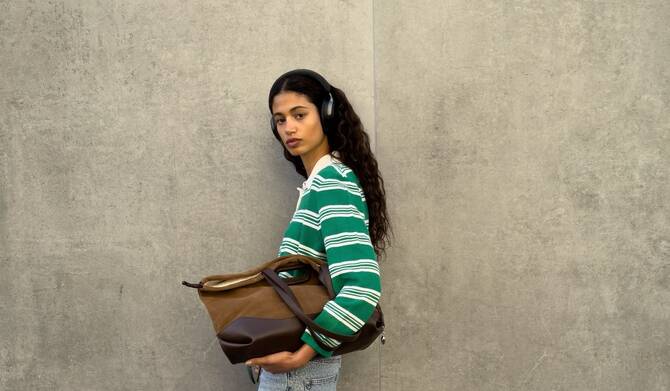ALULA: On a beautiful day in AlUla, Saudi actress Maria Bahrawi is fielding questions from reporters for the first time in her life. As the star of the first Saudi project to film in the historic region, the 16-year-old is experiencing her first taste of stardom, surrounded by flashing lights, cameras and presenters she once watched television, each now pointing to her as an inspiration for a new generation of young Saudi girls.
There are tears streaming down Bahrawi’s face. It is not the moment that overwhelms her, it is the glimpse she catches of her mother, standing just off camera. She runs to hug her, knowing how much she owes this moment to her — and a family that empowered her to dedicate her life to pursuing her dreams.
“From as young an age as I can remember, my mother never held me back from pursuing anything I was passionate about. My family always supported me, never put restrictions on me, and without them I could never have become an actress. I love you, mama, so much,” Bahrawi tells Arab News.

Maria Bahrawi on the set of ‘Norah,’ in AlUla. (Supplied)
While Bahrawi’s face may well become a symbol of the next generation of Saudi artists, women in Saudi Arabia from generations past did not have the same opportunities that she does. That’s something she’s become keenly aware of while making “Norah,” a film that explores those themes.
Set in rural Saudi Arabia during the 1990s, the film follows an artist named Nader, who has given up painting due to societal restrictions and has become a schoolteacher, where he meets a young woman named Norah (Bahrawi), an illiterate orphan who seems to have no path forward to pursue her own dreams, facing an arranged marriage she doesn’t want and full of emotions she doesn’t know what to do with.
“The first day that I walked onto that set in AlUla, I was transported back in time. Suddenly I could understand how people felt. I had watched so many videos of people back then, but I had to be there to really feel it,” says Bahrawi.
In the film, Bahrawi’s character carries a cassette recorder everywhere she goes, recording her thoughts and feelings into it as if whispering them down a wishing well. Cassette recorders were but one thing that the 16-year-old had not even known existed from that time period.
“That was something I learned about on set. Tawfik (Alzaidi, the film’s Saudi director) had to show me how to fix it, how to play it,” says Bahrawi. “I’d never seen one before.”
Bahrawi, who was born and raised in Jeddah, even had to learn from her family the way that women would wear an abaya and niqab.
“My family have lived that life, but I didn’t know how they would wear it, how they would take it off, how their clothes would look from below. How to fasten the niqab on top of it all. It was all new to me,” she says. “Of course, I know the niqab, but the precise way women used to wear it was all new to me. My family taught me how to do it just like they did.”

On the set of ‘Norah’ in AlUla. (Supplied)
Bahrawi was cast in May of this year after auditioning in person only once, driving with her family to AlUla from Jeddah on the off chance she may land the role. Early on in filming, only weeks later, Bahrawi found herself overwhelmed.
“I was expecting it to be hard, but I really thought I might not be able to do it. To get myself through it, I would have to remind myself that this is bigger than me,” says Bahrawi.

Actor Yaqoub Alfarhan plays Nader in the film. (Supplied)
Bahrawi’s co-star Yaqoub Alfarhan, who plays Nader, was invaluable to the young actress. Alfarhan, who has quickly become arguably Saudi’s hottest rising young star after starring in the MBC smash hit “Rashash,” rehearsed with Bahrawi again and again until she felt comfortable, offering her a safe space on set when she needed guidance.
“He really helped me a lot. We did reads together of almost every scene, and we rehearsed the really difficult scenes over and over. I was still balancing school and my outside life as a 16-year-old, but Yaqoub taught me how to isolate myself mentally and forget everything when I step on set so we could all focus and be in the moment together. I’ll never forget that,” says Bahrawi.
Perhaps the most important lessons, though, came from the character of Norah herself. As Bahrawi immersed herself in the role, coming each day to the real-life small village they filmed in, it was the journey of this young woman who slowly discovered the power within herself and refused to compromise the convictions that changed her, and will help her become the woman she wants to grow into.
“She taught me to be myself, to be true to my own spirit, and stand up for myself despite all the challenges,” says Bahrawi. “From now and for the rest of my life, because of Norah, if I don’t find support, I will support myself. I want to find success, and I’ll do it against all odds.”

Director Tawfik Alzaidi. (Supplied)
While the experience of playing Norah is one that has opened her eyes in countless ways, the young actress is already looking towards the future, and the many roles she could play that could explore life in a vastly different Saudi Arabia, a Kingdom that she grows prouder of each day.
“I want to explore a role that's speaking about the current time, and speaks about my generation of young women at this time in Saudi Arabia. There are challenges now, too. There are many things that women are going through, and many positive things as well that have yet to be shown on screen. There are so many things that have happened that would be great to show in a film, and that’s something I would love to be a part of,” says Bahrawi.
As the sun sets in AlUla, however, Bahrawi pauses to reflect on how lucky she is to be a part of this at all, and to make history in the first Saudi film to take in the majesty of that very special place.
“Every day we pass historic landmarks such as Elephant Rock and Hegra, exploring these amazing mountainous areas and landscapes. I can’t believe we’ve gotten to do this together,” she says.
“Right now, I’m living the dream. Inshallah, I’ll reach bigger and higher goals. I have all the opportunities in the world, now it’s up to me to take them.”












